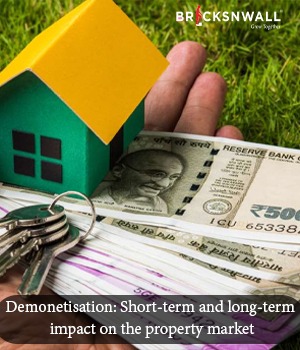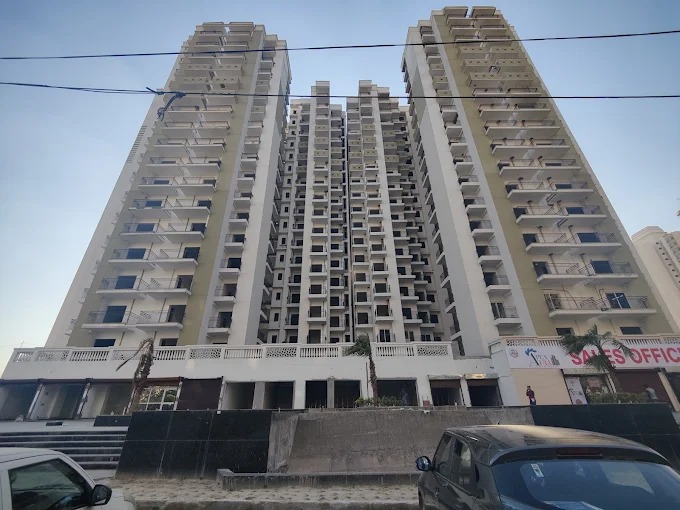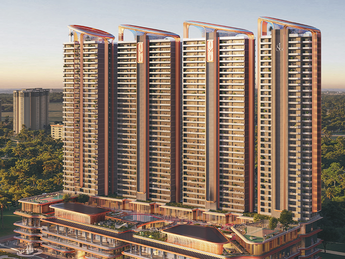Top Financial Mistakes to Avoid When Buying a Home
Bricksnwall Trusted Experts

Buying your first flat is a thrilling and
perplexing experience. It can be challenging, particularly if you've never done
the process before. This blog post will assist you in avoiding major traps that
first-time buyers must avoid.
The selections are typically daunting, regardless of whether you're looking for residential or commercial real estate. These are the top five mistakes people make when purchasing a home for the first time.
The Top 5 Common Errors First-Time Homebuyers MakeWhen purchasing a home,
The Following Five Items Should be Avoided:
The first mistake is to ignore the pre-approval procedure.
Explain what a bank preapproval is.
A mortgage pre-approval, or credit check, is the
first step a lender takes to determine whether they are willing to fund a house
purchase. This mainly consists of an examination of your credit history, which
displays your income, assets, obligations, and borrowing ability.
The maximum amount of credit you can receive may be
specified in the lender's pre-approval letter, depending on the terms.
Advantages of Getting Approved Before Home Hunting
- Realistic Budget: During the pre-approval phase, you can only view properties that fall within your price range because you are completely aware of your financial situation
- Stronger negotiating position: Sellers are more likely to turn down your offer if they are positive that their products will sell out as soon as you are pre-approved.
- Faster Closing Process: The time required to complete loan funding is decreased by pre-approvals and related documentation.
- Finding Credit Problems: When applying for a
home loan, this aids in locating any potential credit problems.
Is it Feasible to get Indian Bank Preapproval?
- Examine and contrast: Investigate several lenders and the mortgage options that may be best for you.
- assemble the required documentation: the following is necessary:
- Examples of picture identity cards include voter ID, passport, driver's license, NREGA card, student photo ID card, defence ID card, birth certificate, passport, ration card, Aadhar, and PAN.
- Verification of address
- The latest two to three years' worth of
income-tax returns, tax credits, and pay stubs are examples of evidence of
income.
- bank statements spanning six months.
- Investment proofs
- Apply: You can apply electronically or in person at the bank branch, where you will need to fill out an application and bring the necessary paperwork.
- As part of the routine assessment process, the bank will do a credit check to ascertain your credit position.
- Verification: For any number of reasons, the bank may request to see your work records and other documents.
- Receive Pre-approval: Depending on the terms, the bank will provide a pre-approval letter that includes the loan amount and conditions.
The second mistake is to underestimate the total cost of purchasing a home.
Here are Some Instances of Unstated Costs that Surpass the Purchase Price:
- Although there are state-by-state differences, stamp duty typically ranges from 3 to 7% of the property value.
- Although registration fees are usually at least 1% of the property's value, there may be a cap in some states.
- For structures that are still being built, the current GST rate is 5% without input tax credit.
- The Society's maintenance costs: This section lists the monthly costs for maintaining the shared areas.
- Connections to utilities: These include the cost of setting up perhaps long-term connections for water, electricity, and gas.
The sums paid on a regular basis to guard against
all of these losses as well as ones that might not have been predicted are
referred to as home insurance.
Typically, estate agents' broking fees range from 1% to 2% of the property's sale price.
Property Tax Considerations in Different Indian States
|
State |
Tax Rate |
|
Maharashtra |
0.1% to 1% |
|
Karnataka |
0.2% to 1% |
|
Delhi |
6% to 12% |
|
Tamil Nadu |
0.5% to 2% |
|
Gujarat |
0.1% to 0.5% |
Estimated Expenses for Upkeep and Repairs
You might need to set aside money for the following
maintenance and repairs if you own a home:
- Annual Maintenance: In general, one to two percent of the property's value should go towards maintenance costs.
- Painting is done every three to five years and costs between ₹12 and ₹25 per square foot.
- Plumbing: For small repairs, you should budget between ₹5000 and ₹10,000 each year.
Neglecting the Impact of Neighbourhood on Community Evaluation
Consider the following elements while selecting a neighbourhood for your new home:
- Safety and crime rates
- Accessibility to employment, schools, and other necessities
- Public transit accessibility
- Current and potential customers of products
and services, like those offered at shopping centres, parks, and
healthcare facilities
- Community demographics and culture
- The amount of noise and traffic volume
Plans for Future Development and How They Affect Real Estate Value
Future development plans and their potential
effects on property value are listed below:
- Examine the plans for municipal expansion.
- Look for tracking information about upcoming
improvements (such roads or metro lines).
- Examine zoning regulations and new company
ventures.
- Consider their impact on living standards and property values.
Underestimating the Expense of a Home Inspection
What is the exact scope of a home inspection in India?
In India, a home's safety is determined by checking the structure, electrical system, water supply, and roof, among other things. Inspections look at the structural integrity of walls, floors, ceilings, doors, and windows.
How Do I Select a Reliable Home Inspector?
Finding a qualified house inspector in India can be
difficult due to the absence of particular requirements. First, talk to real
estate agents, architects, and engineers.
When searching for inspectors, choose civil engineers or architects because they are more accurate and knowledgeable about the local real estate market. Receive sample reports and review client feedback. Walk around the property with the inspector to get a firsthand look at how it is being evaluated.
Mistake Number Five is Using Your Own Money as a Down Payment
More money paid up front may result in cheaper
monthly loan payments, but using all possible savings is risky. The strategies
listed below are recommended.
Balancing down payment with emergency savings.
In case of an emergency, it is recommended that you save at least 3-6 months of expenses.
Housing charges for repairs and maintenance may be imposed unexpectedly.
Some of this money should be set aside for future
disasters.
India's Government Offers Initiatives for First-Time Buyers
The Pradhan Mantri Awas Yojana (PMAY) lowers interest rates on housing loans.
The Credit-Linked Subsidy Scheme (CLSS) offers borrowers interest subsidies.
Low-income people can find inexpensive housing through initiatives run by the National Housing Bank (NHB).
- A good house prioritises structural integrity, suitable room, proper ventilation, adequate lighting, and modern conveniences for comfort and convenience.
- The value of a home is influenced by several aspects, the most important of which are location, condition, and upgrades.
- The most important aspect of buying a property is making sure it fulfils your financial requirements and long-term goals. This includes conducting a detailed financial analysis, comprehending the whole cost of homeownership (including the mortgage, taxes, insurance, and maintenance), and getting pre-approved for a mortgage.







